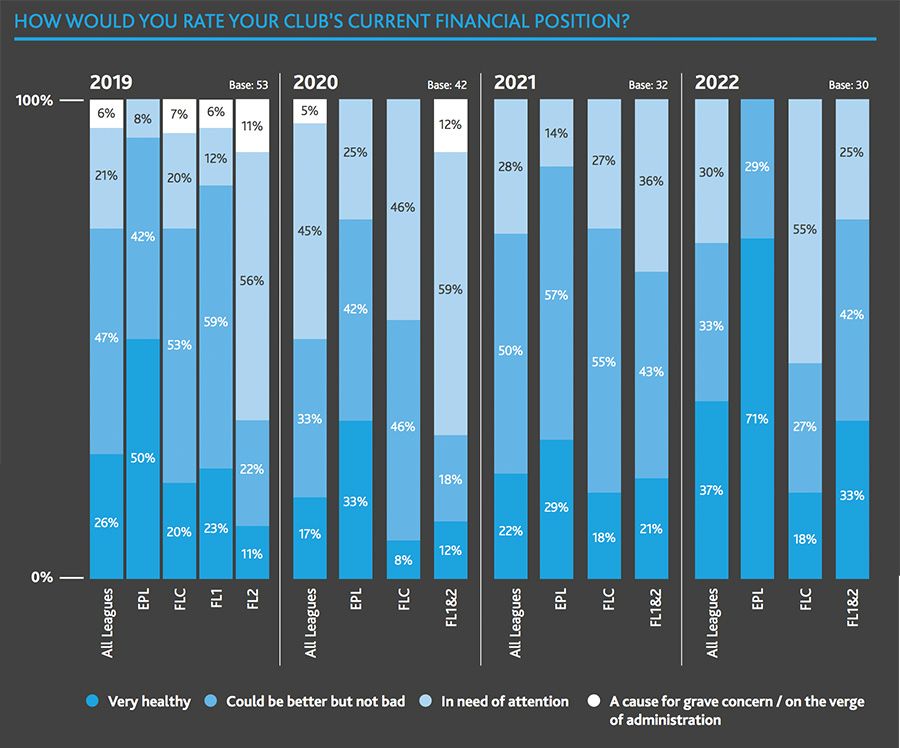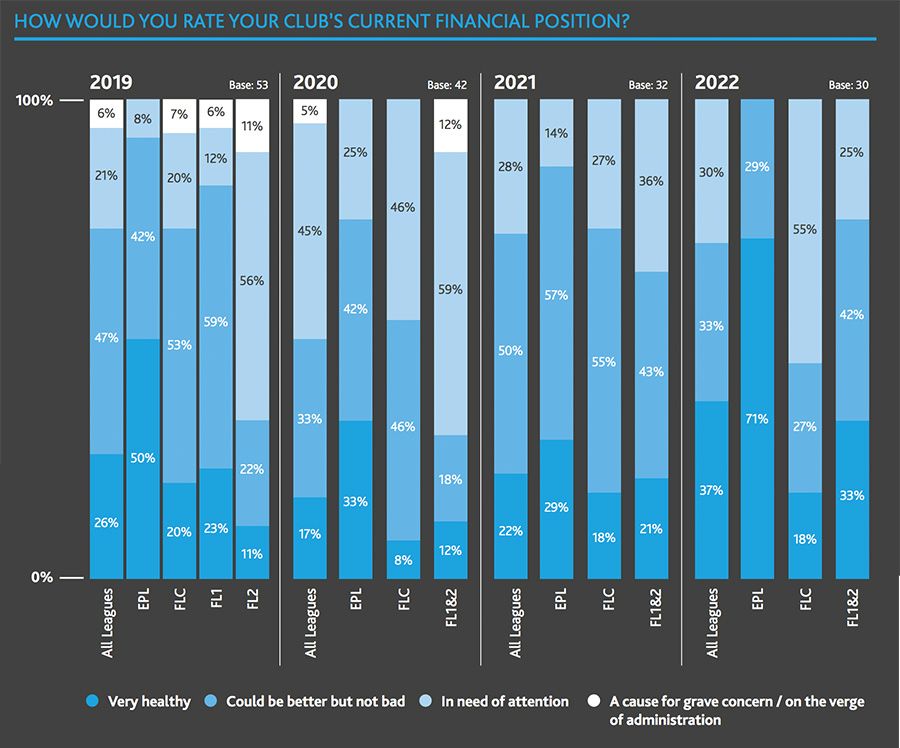The UK’s football pyramid is still far from secure, according to new research into English club teams’ finances. While no Premier League clubs believe their finances are a cause for concern, the three tiers beneath them see more than half of board rooms warning that their position is in need of attention – doubling on the previous year’s results.
The high-stakes world of professional football appeared to be reaching a cross-roads in 2019. While clubs that could regularly secure access to the English game’s top-flight were thriving thanks to the exponential growth of broadcasting revenues, clubs further down the pecking order were over-stretching themselves in order to gain access to the apparent land of milk and honey. Most notably this led to the collapse of Bury FC – with many more clubs regularly talked about as soon to join it.
The pandemic changed things – in so far as it suddenly jeopardised the previously guaranteed earning potential of football’s top table. As the revenues of top teams nosedived, with broadcasters seeking rebates for a product they saw as diminished without fans, 25% of Premier League clubs suddenly found that their finances were “in need of attention”, while more than half of the clubs in the three divisions beneath said the same.

Two years later, a new study from BDO has found that the picture is still far from rosy for many clubs across the divisions. At present, the divide between the haves and have-nots seems to have resumed, with many Premier League clubs returning to health – but with new economic storms brewing around the world, they may have simply kicked the can down the road, instead of tackling long-term structural issues with their financial models during the pandemic.
BDO’s researchers found that there have been good opportunities for clubs in the top-flight of football to improve their position. Around 71% of Premier League clubs said their financial position was “very healthy”, while 29% said it “could be better but is not bad”. However, much-needed ticket-revenues boost the finances of clubs in the Championship, League One and League Two, 55% of clubs perceive their position to be “in need of attention” – double the 27% seen in 2021.
With top-tier clubs having either railed against the idea of redistributing wealth to support smaller clubs during the lockdown months, or using it as an opportunity to try and grab power from them, the system that feeds the Premier League is approaching a point of no-return. As well as the fact that, due to the relegation system, three teams each year from the Premier League may join this precarious world, clubs at the top are also facing new, distinct challenges to those in the lower leagues.

Clubs in the second, third and fourth tiers look to have done more to tackle player salary inflation during the pandemic than those in the Premier League teams. While they are exposed to fluctuating attendances, relating to the cost-of-living-crisis, then, they are marginally less concerned with the inflexibility of player salaries. In the case of the Premier League, however, 67% of respondents told BDO that their biggest concern for the coming 12 months was their wage bill.
Ian Clayden, Partner and Head of Professional Sports at BDO, said of situation, “For football finance, as for the sport itself, it is not the setback that defines a club, it is the response. Football’s response to the pandemic was principally funded by shareholders (feeling the pinch but, for the time being, remaining resistant to their clubs being someone else’s bargain purchase) and debt (rather than grants) with repayments terms that many clubs would find restrictive. All the while, player wages were not, and were never going to be, a lever that clubs could pull to take meaningful levels of pressure out of the system.”
European football’s governing body UEFA is introducing new measures to try and ensure clubs spend less than 70% of income on wages, but at present most of the Premier League are well above that threshold. Those measures will not be fully phased in for several years, either, so if a financial crisis were to hit top clubs in the interim, it is likely they will prove to be too little, too late.




